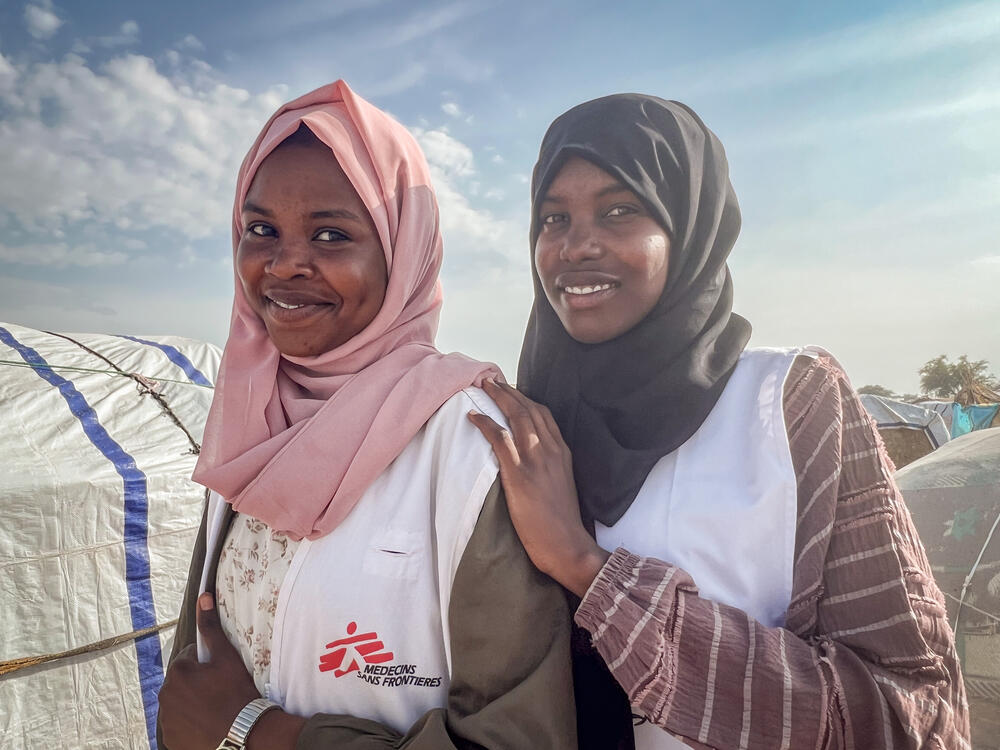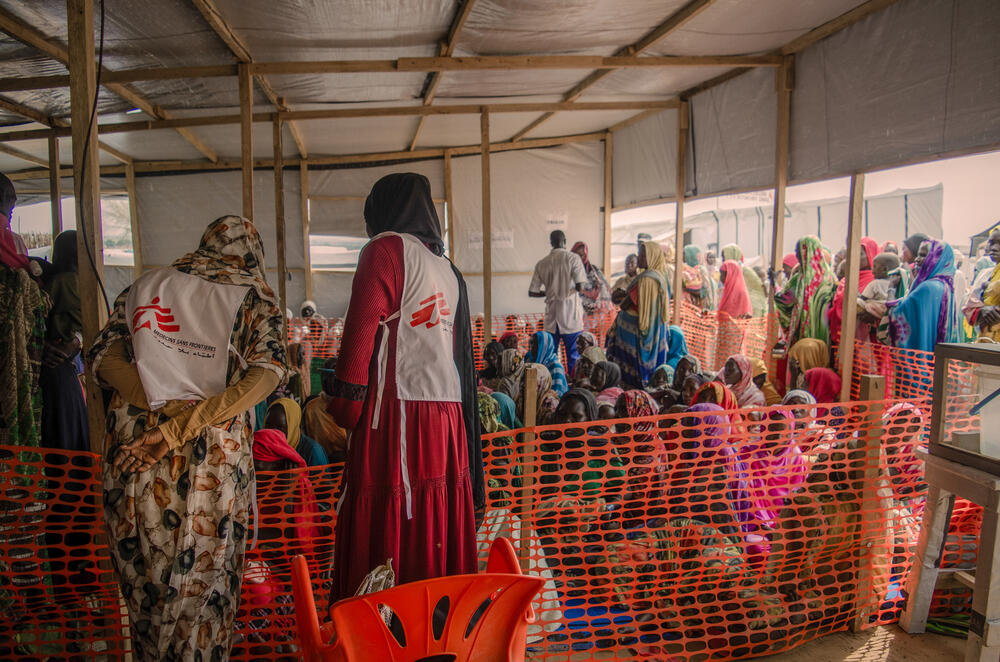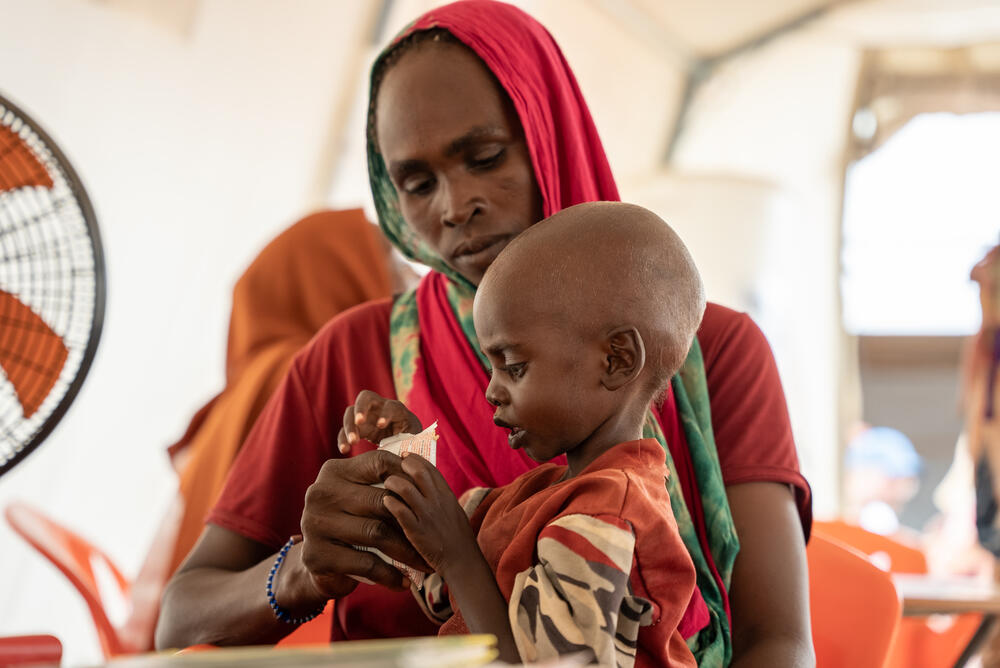Sudan crisis: "We lost everything... but I will keep going"
"I saw with my eyes, really bad things," says Sijood, above, left, a refugee from Sudan. "It was really dangerous… They killed people without hesitation. They would kill the children."
Sijood is one of four million people who have been forced to flee their homes to escape the conflict in Sudan. While 3.3 million are displaced within Sudan itself, more than 380,000 people like Sijood have crossed the border into eastern Chad.
Most have sought refuge in camps and settlements in and around the border town of Adre. Médecins Sans Frontières / Doctors Without Borders (MSF) teams on the ground are witnessing first-hand the dire living conditions in these settlements, where refugees face severe shortages of food, water, sanitation, shelter and medical care.
Weeks without food
“It’s hard to describe what these people are going through,” says Susana Borges, MSF emergency coordinator in Adre.
“People are desperately waiting for food rations. Some have gone five weeks without receiving food. People are feeding their children on insects, grass and leaves. They have much less water than they need and many have no shelter whatsoever. How can they survive like this?"
“The most urgent health needs we are dealing with are malaria, diarrhoea and malnutrition,” says Borges, explaining that people have escaped a war only to face life-threatening health conditions due to the conditions at the camp.
“We are doing our best, but people’s needs are massive."
Vast medical needs
MSF teams, working in partnership with the Ministry of Health, have expanded inpatient capacity in Adre hospital and four neighbouring health centres to 420 beds.
In Adre hospital, 150 patients are currently receiving treatment for trauma injuries, mostly gunshot wounds sustained in Sudan, while 133 children are being treated for life-threatening medical complications linked to malaria and malnutrition.
MSF director of operations, Kenneth Lavelle, provides an update from eastern Chad
£24 could pay for three splints used to immobilise the limbs of injured patients
The generosity of people like you means expert MSF medical teams can deliver essential medical care to people across the world.
Maternal healthcare and care for survivors of sexual violence is also desperately needed. MSF mental health teams supporting people in Camp Ecole have heard numerous reports of Sudanese women and girls being subjected to rape and other forms of sexual violence during their journey to Chad.
Many recounted being confined in a room and raped by groups of men. Given the depth of their psychological trauma and suffering, these people need ongoing and comprehensive support, say MSF mental health staff.
In Sudan, the number of people forced to flee their homes is rising daily. MSF teams are working on both sides of the border, but we are also calling on the UN, international donors and aid organisations to help us meet the urgent humanitarian needs and to prevent more suffering and potential loss of life.
In Adre, Sijood has recently joined the team at MSF, where she’ll be working as a health promoter, sharing information about health and medical services to her fellow refugees.
"We lost everything," she says. "We lost our people, our brothers, our sisters, we lost our money, we lost our house, we lost our country too. It’s very hard to say... but we must talk about this. I am a refugee. I live a difficult life, but now by the will of God, I will keep going."
MSF and the Sudan crisis
On Saturday 15 April, intense fighting broke out across Sudan with a wave of gunfire, shelling and airstrikes.
The violence between the Sudanese Armed Forces (SAF) and the Rapid Support Forces (RSF) has trapped millions of people in the middle of an unexpected conflict. Many have been forced to flee their homes while access to essential services such as healthcare has become increasingly difficult.
Médecins Sans Frontières / Doctors Without Borders (MSF) teams already working in Sudan have been responding to the crisis since its first moments.


